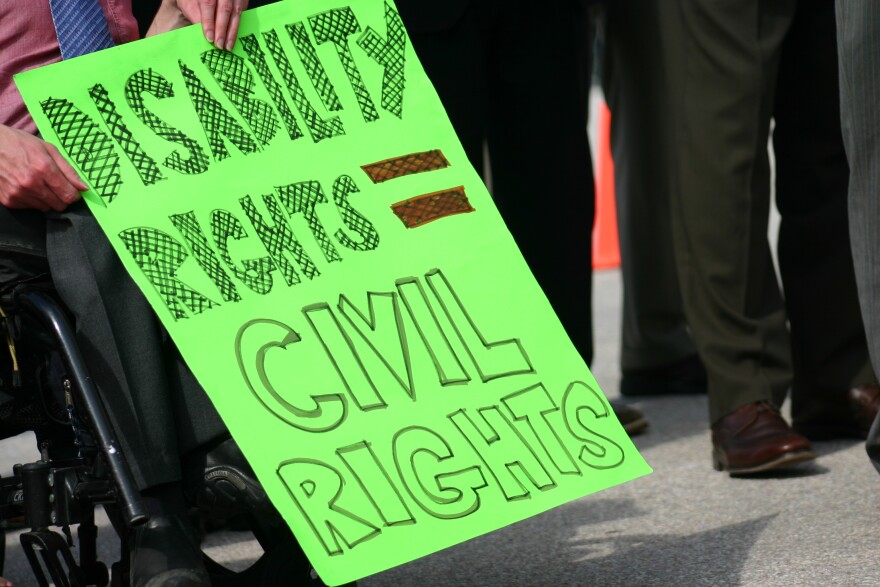The federal government could take aim at some of the key programs serving people with disabilities.
Here’s several ways communities could be impacted in our region:
Special education
Special education programs could lose teachers who are paid through the Department of Education (DOE).
The Trump administration has targeted the DOE for cuts — and could even eliminate it. President Donald Trump has long accused schools of “indoctrinating young people with inappropriate racial, sexual, and political material.”
Kathy Gebhardt with the Colorado State Board of Education said losing these teachers could mean significantly handicapped children won’t getting aides or medical services.
“We’ve heard about being able to be part of society and being integrated into a classroom,” Gebhardt said. “I see some of that going away.”
Disability rights
Gebhardt also worries that disability rights will no longer be enforced at school.
Since President Trump’s inauguration, the DOE’s Office of Civil Rights has turned to investigating cases related to gender-neutral bathrooms and transgender athletes on sports teams, according to reporting from the nonprofit investigative newsroom ProPublica.
Meanwhile, the investigation revealed the office has put about 6,000 complaints related to students with disabilities on hold.
Medicaid
Disability rights advocates are also sounding the alarms about potential cuts to Medicaid, the health program for low-income Americans.
Under one proposal from Washington Republicans, certain adults between age 16 and 59 would have to work to get benefits. This would only apply to “able-bodied adults,” but some say this doesn’t exempt all people with disabilities, since they often qualify for Medicaid on another basis.
People who view Medicaid as welfare support this move, but Colorado advocate Hillary Jorgensen said people with disabilities who can’t work could lose coverage and end up in long-term care.
“The disability community fought for a long time to get out of institutions and become a part of the community, and threats to Medicaid are a threat to that independence,” said Jorgensen, the executive director of the Colorado Cross-Disability Coalition.
Other concerns
Advocates also worry how cuts to diversity, equity and inclusion programs will impact accessibility for people with disabilities.
Reductions to the federal workforce also could impact this group of people, and in-person work requirements could force them out of job.
This story was produced by the Mountain West News Bureau, a collaboration between Wyoming Public Media, Nevada Public Radio, Boise State Public Radio in Idaho, KUNR in Nevada, KUNC in Colorado and KANW in New Mexico, with support from affiliate stations across the region. Funding for the Mountain West News Bureau is provided in part by the Corporation for Public Broadcasting.



